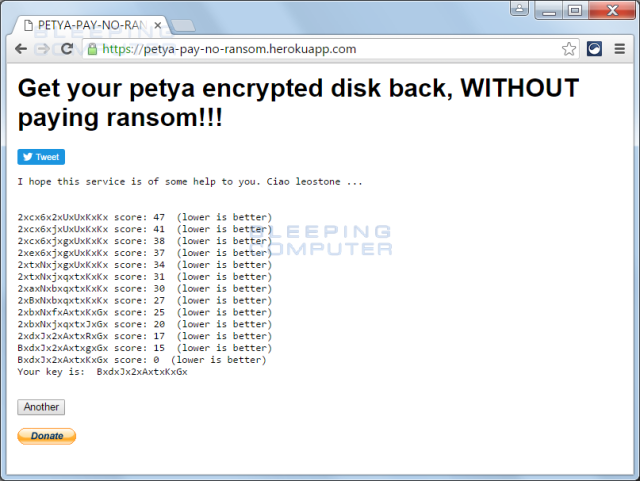
Enlarge (credit: Bleeping Computer)
A nasty piece of ransomware that took crypto-extortion to new heights contains a fatal weakness that allows victims to decrypt their data without paying the hefty ransom.
When it came to light two weeks ago, Petya was notable because it targeted a victim's entire startup drive by rendering its master boot record inoperable. It accomplished this by encrypting the master boot file and displaying a ransom note. As a result, without the decryption password, the infected computer wouldn't boot up, and all files on the startup disk were inaccessible. A master boot record is a special type of boot sector at the very beginning of partitioned hard drive, while a master boot file is a file on NTFS volumes that contains the name, size and location of all other files.